
OR
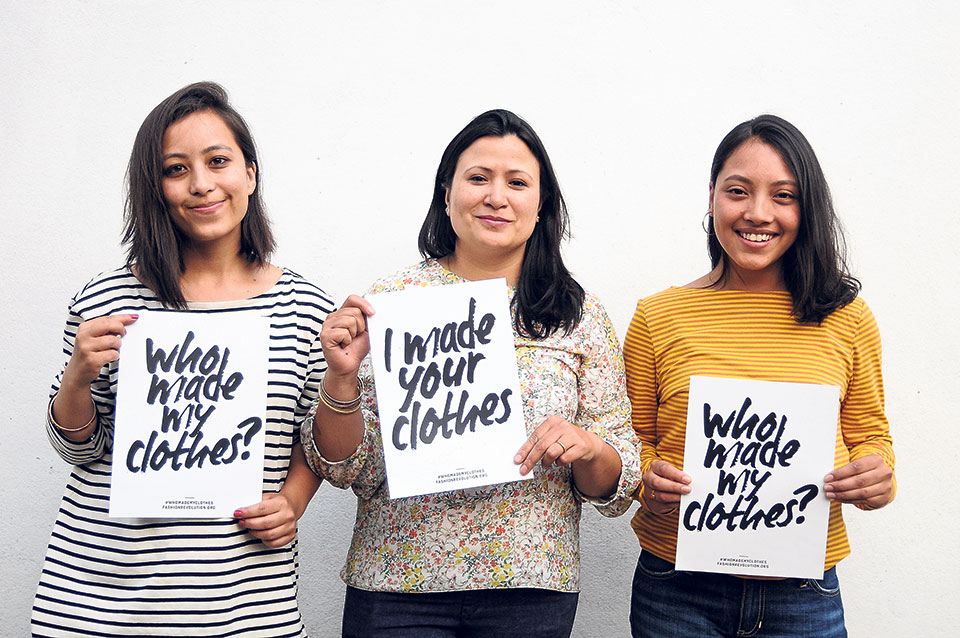
All of us love wearing fashionable clothes and we are really happy if we are able to get them for cheap. But not many of us think about the ones who make our clothes and the amount they are paid for it. According to Sunaina Singh Shrestha, country coordinator of Fashion Revolution Nepal, clothes have to go through a long route before they are actually displayed at the various showrooms across our country.
“A lot of handwork from cotton farmers, weavers, spinners, dyers, tailors, and others are put into our clothes. Sadly, most of the people who make clothes for the global market live under the poverty line. They struggle to make ends meet and are often subject to abuse and violence,” says Shrestha adding that even the most expensive brands do not pay their employees well.
Fashion Revolution Nepal is taking place on the April 28 at Suburb Cafe in Lalitpur. Through this event, that will be a full day of workshops, activities and demonstrations, they aim to raise awareness about ethical fashion practices in Nepal. April 28 this year also marks the fifth anniversary of the Rana Plaza Factory collapse. This factory mishap in Bangladesh killed 1,138 people and injured about 2,500 laborers, women and children working at that factory. “There were about five garment factories in that plaza and all of them were working for big brands,” says Shrestha.
The employees and employers knew that the building was weak. Many cracks had earlier been identified in the building. However, as the laborers did not have a union representation, they were forced to go back to work, unable to stand up for themselves.
“Even today, most employees who survived suffer from trauma and are unable to find a job for themselves. Also, many families who lost their loved ones have not received any compensation,” adds Shrestha.
Fashion Revolution tends to encourage each and every person to think about the ‘true’ value of his/her clothes. They also feel that there is a desperate need to bring about fashion revolution in today’s world.
According to Simran Silpakar, Fashion Revolution Nepal team member, this movement is not only for people involved in the fashion industry. She says this innovative incentive intends to include every ordinary individual who wants to make a contribution in upgrading the fashion industry.
In the quest to achieve this change, Fashion Revolution addresses three key issues primarily the model, material and mindset. Firstly, talking about the model of fashion business, fashion industry has become huge over the past 30 years. In the same timeframe, factory disasters have also increased. Despite the rise in the cost of raw materials, energy prices and the cost of machinery used, our clothing is available at a very cheap rate, especially in countries like Asia. Hence, it is clear that there is a huge imbalance within the fashion industry.
The second most important issue is the ‘materials used’ for production that is degrading our environment and exploiting human labor. Workers, be it working for huge or small brands, are not provided with sufficient safety measures. Also, due to the cheap availability of clothes, more than 150 billion items of clothing are shipped every year and this may have a devastating impact on our environment in the long run. Also, the local market is at a great loss and local artisans are gradually losing their jobs as well.
And lastly, over the past years, there is an unhealthy change in the ‘mindset’ of consumers. “We have started buying more clothes at cheap prices,” says Shrestha explaining Fashion Revolution encourages people to realize the true cost of their cheap bargains and motivates them to buy less and buy better quality products and question the realities behind the production of their chosen product.
Hence, Fashion Revolution Nepal, with four core team members – Sunaina Singh Shrestha, Simran Silpakar, Bini Bajracharya and Anouk Tamrakar – wants to bring forth likeminded brands, manufacturers and designers who are compassionately working for ethical fashion and sustainable practices in Nepal. This one-day program includes companies that have been enthusiastically working for years in Nepal to promote transparency and labor rights. These brands include Maya Handicrafts, Kallisto Designs, Hattihatti, Sabah Nepal, Haushala Creatives, Muskan_handmadeinnepal, Aamo Nepal, Sibhori Nepal, Khushi Baskets and local women’s handicraft.
“All of us who believe in fashion revolution feel that this industry should be fair, ethical and transparent,” says Shrestha.
According to Bini Bajracharya, a Fashion Revolution Nepal team member, Fashion Revolution is all about realizing the impact of the fashion industry in the lives of people and being sensible about fashion. She feels that Nepal is a country full of beautiful art, handmade crafts, and manpower that is quick in grasping new skills. For Bajracharya, Fashion Revolution is not only about sustainable development and ethical fashion.
She believes it can bring about a huge change in the lives of artisans and craftsmen of Nepal.
“If you are living in Kathmandu and you call yourself fashion or brand conscious then you must join Fashion Revolution Nepal. This movement will not only bring about awareness about the production process of your goods but will also help you realize the amount of hard work required to make people look nice,” concludes Bajrachraya adding that people who attend this event will definitely go back understanding the true value of minimalistic living.
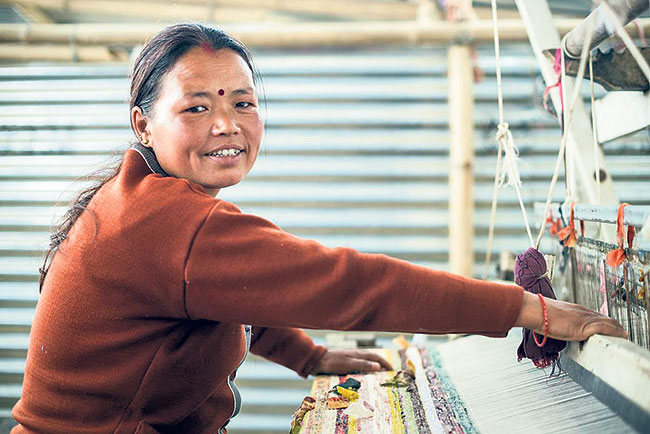
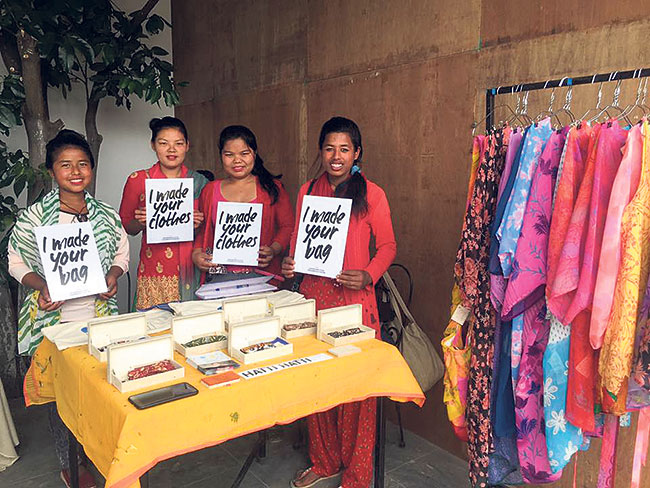
You May Like This

Rethinking fashion
Nepal is changing. And so is its taste in fashion. There is now a growing craze among Nepalis for superior... Read More...

Vanessa Kirby joins The Rock, Jason Statham in Fast & Furious spin-off
Actor Vanessa Kirby will join the cast of the Fast and Furious spin-off along with actor Jason Statham and Dwayne... Read More...

Govt forms 7-member panel to build KTM-Tarai fast track itself
KATHMANDU, Dec 22: The government has decided to build the much-talked about Kathmandu-Tarai fast track on its own. ... Read More...




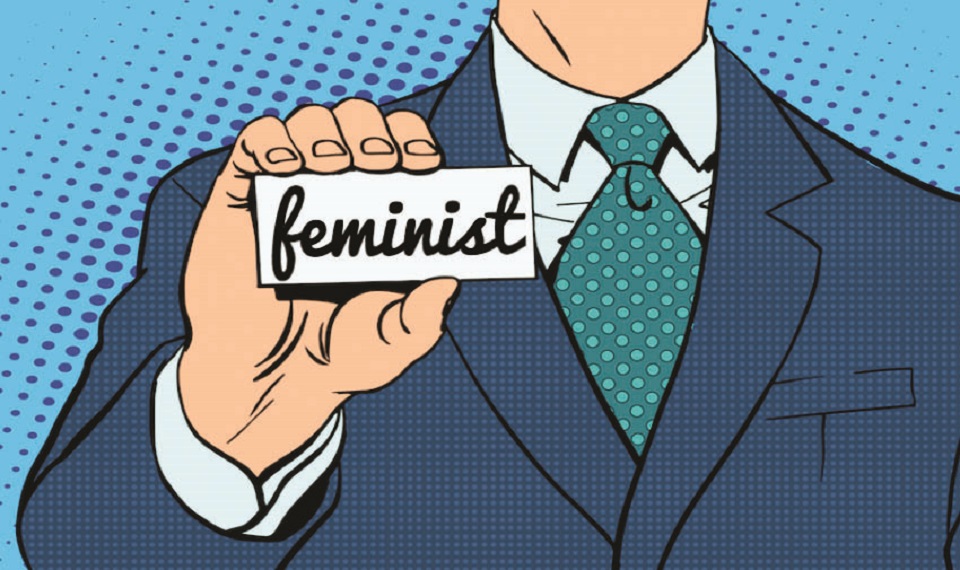
Just In
- Political party leaders express commitment to ensure consensus to promote investment in the country
- Ilam by-election update: UML's Nembang continues to lead in vote count
- Demystifying labeled Feminism
- Japanese Foreign Minister to visit Nepal next week
- Bajhang by-election update: NC candidate ahead by 249 votes
- Aid for war: On the United States Senate and aid package
- NEA Provincial Office initiates contract termination process with six companies
- Nepal's ready-made garment exports soar to over 9 billion rupees








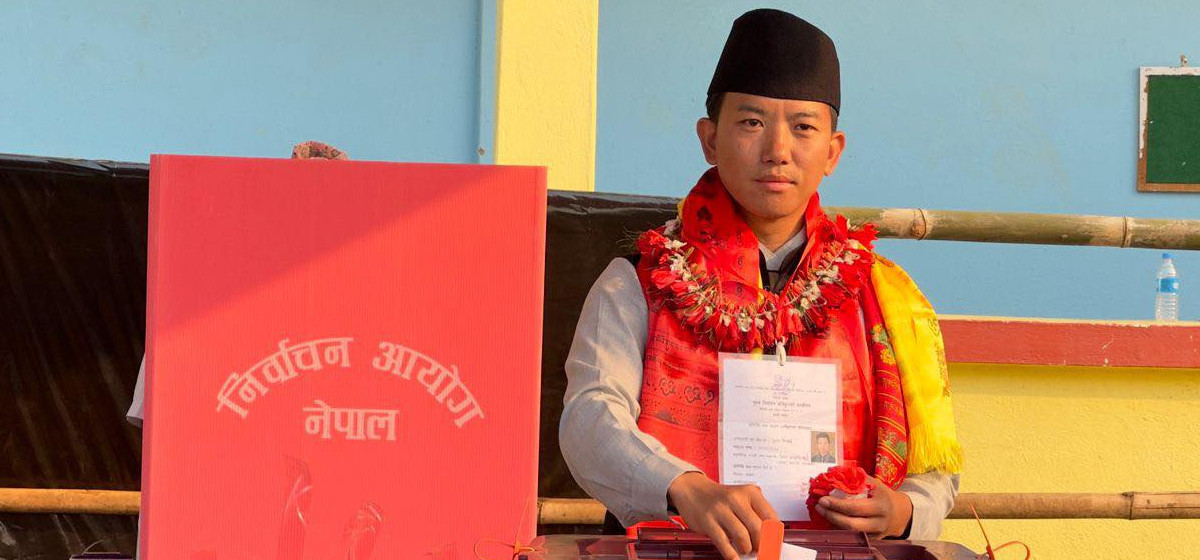

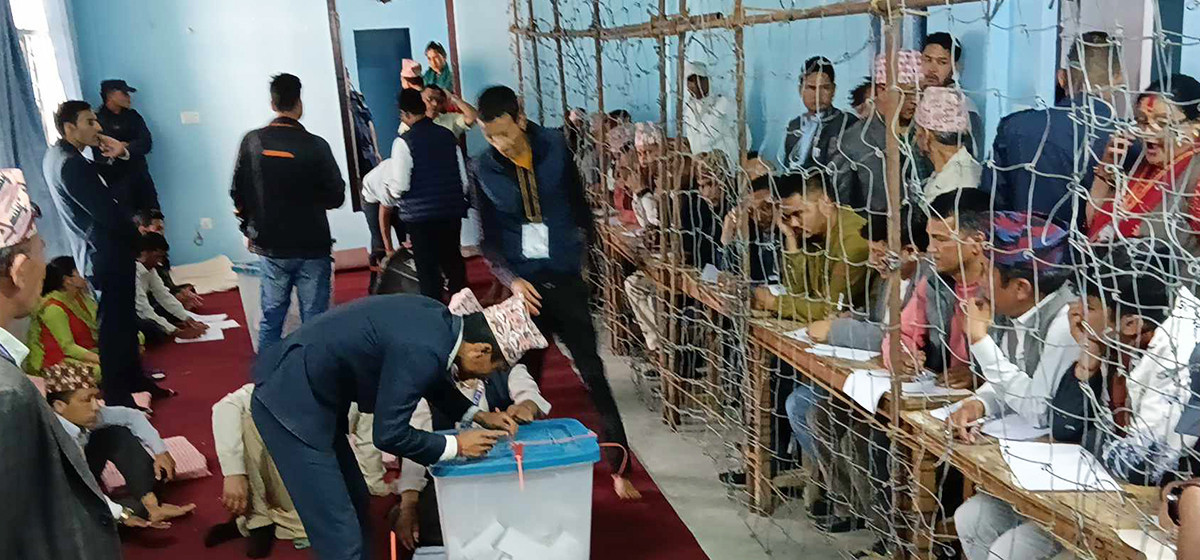
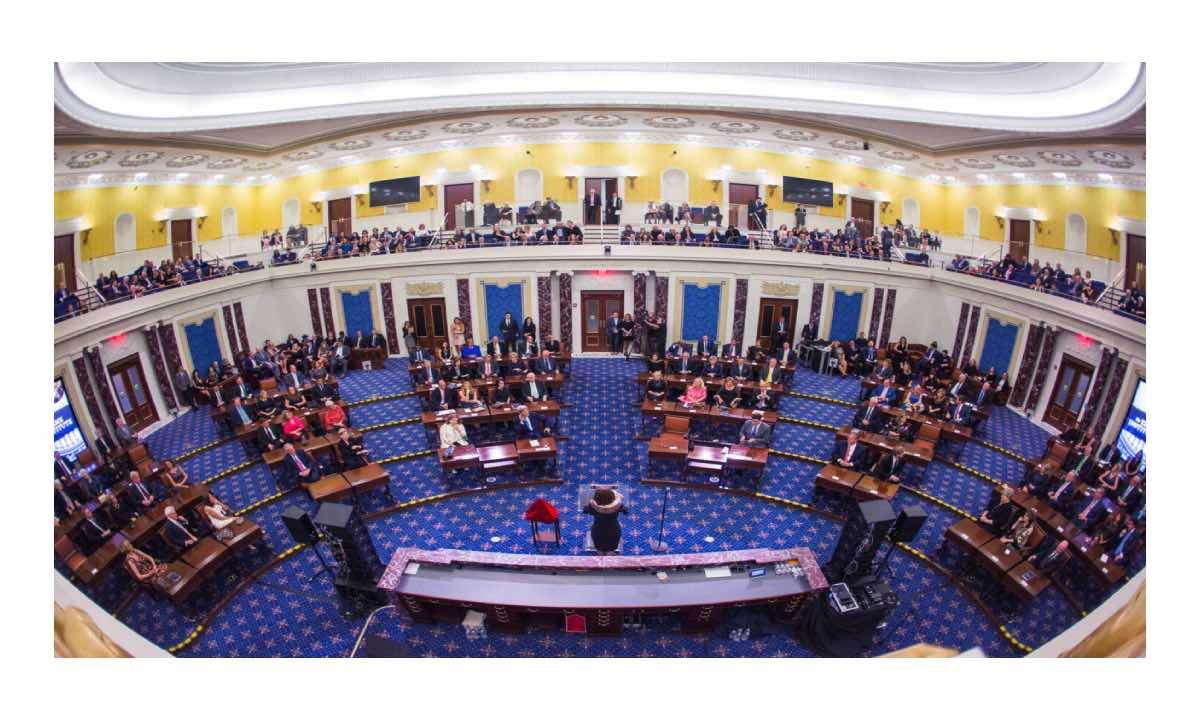


Leave A Comment